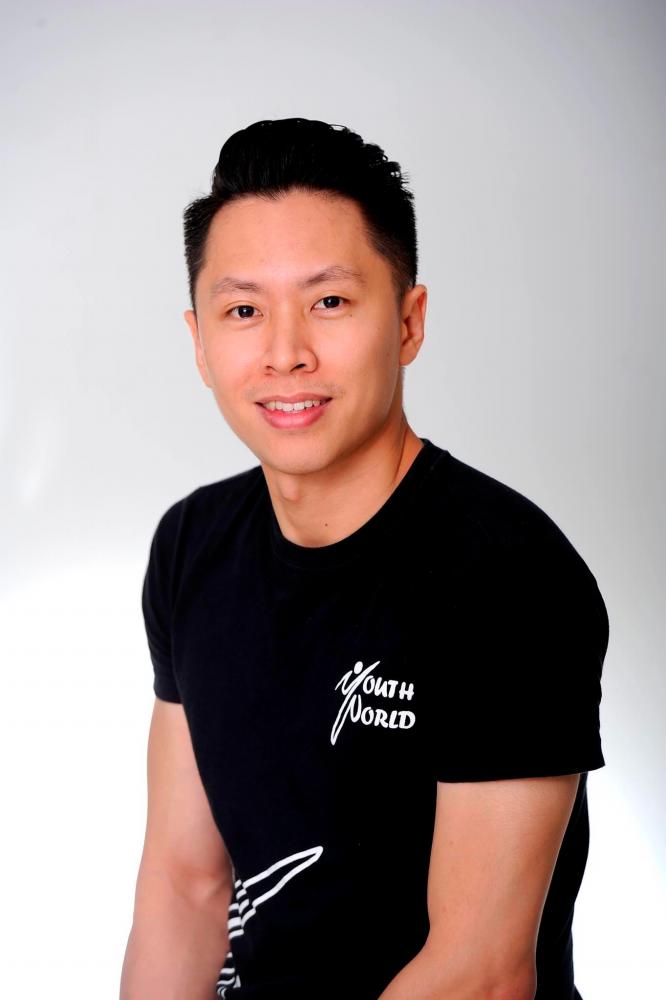EDDIE LIM YIT MIN is a former Malaysian national Taekwondo athlete turned entrepreneur. He was the only Malaysian to win a gold medal in the men’s category at the 22nd Southeast Asian (SEA) Games in Vietnam in 2003, and at 18 years old, he was also the youngest Malaysian male SEA Games gold medallist at the time. After retiring from the national Taekwondo team in 2004, he resumed his tertiary education and completed his degree in finance at HELP University under a full scholarship.
Eddie is currently the Head of the Youth Bureau under the ASEAN Retailers and Franchise Federation, an association heavily invested in promoting the economy and development of trade across various industries within the ASEAN and beyond.
What made you pivot to education, training and youth development rather than continuing further in the field of sports?
“I started coaching Taekwondo at a very young age – 15 years old to be exact – helping out my coach when he was not available. I believe that great coaches are like great teachers; they do not just train and teach you, but are also able to inspire and make you want to be a better student. I owe a big part of my growth in the sport of Taekwondo to my coaches.
“[A] coach’s responsibility does not just revolve around teaching technical skills – it is also about instilling positive values into a student’s lifestyle and behaviour in a more holistic manner.
“I wanted to reach out to more young people with this message, and that was when I started Youth World to achieve this goal. Since then, my team has been advocating the importance of holistic education to more than 400 schools nationwide, reaching out to more than 200,000 students over 15 years.”
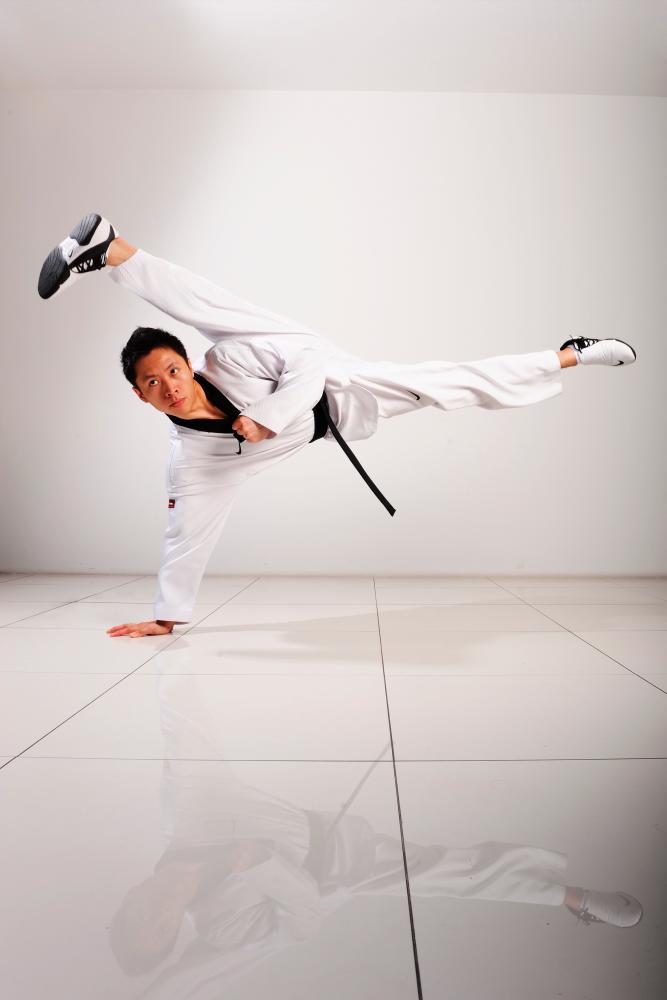
What are the lessons that you have learned as an athlete that you now practise in your professional venture in training and youth development?
“I believe that sports and business, or any other fields for that matter, require the same foundation to grow. Not everyone can be an Olympian, but anyone can apply an Olympian’s mindset in anything he or she does.
“Firstly, I have learnt that success doesn’t happen overnight, just like how the work to win a medal begins not when we step into the ring, but years before. There will always be challenges and hardships along the journey. It’s just part of the game, not unlike the injuries and losses that we go through as an athlete.
“Sports also taught me to be independent. I believe that champions should have the intrinsic drive to expand their boundaries and push themselves forward. Coaches are merely there to guide. In my professional venture, this serves as a reminder that I need to constantly strive for growth and not be confined to a comfort zone.”
What are the challenges Malaysian youth are facing and what are some of the solutions your company is looking into?
“I look at youth development from two different perspectives – academic and non-academic. The non-academic aspect includes personal development in terms of values, soft skills, and hard skills. The academic aspect covers the formal education system. I strongly believe that both are equally vital to set oneself apart. While sports gave me the opportunity to [experience] the world, formal education provided me with the capacity to think critically and turn these experiences into beneficial systems for myself and the masses.
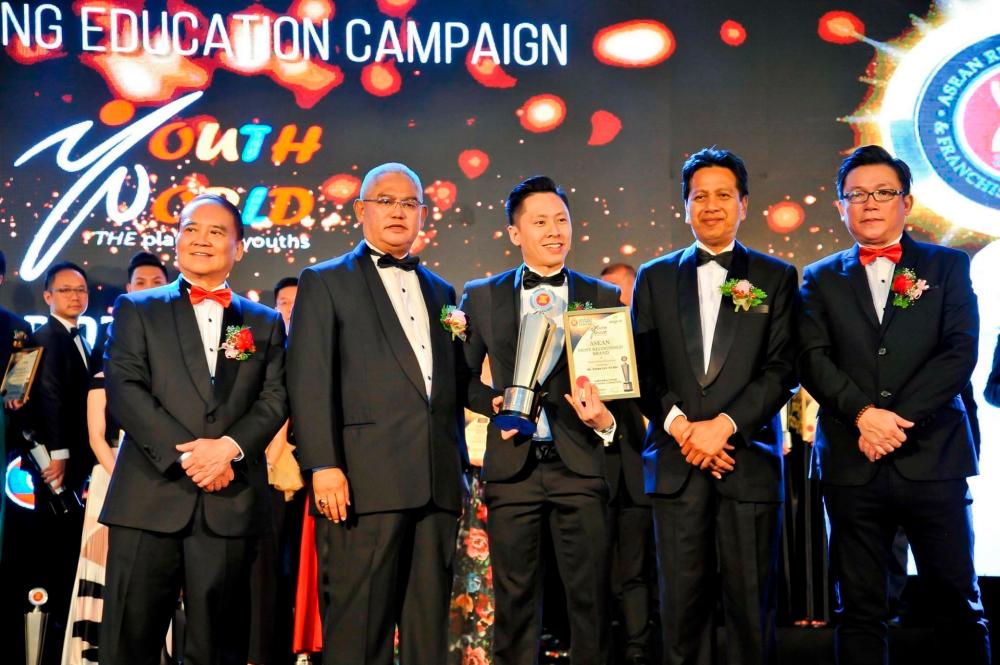
“I think education in Malaysia needs a reform to ensure that both of these aspects of youth development are systematically addressed in the formal education segment. This does not mean that they are not already within the system, because there are existing initiatives and avenues available to students. However, the relevance of the subjects and skills taught in relation to current times need to be looked at. Teachers and private tutors need to be upskilled in terms of their capability to deliver their knowledge.
“Language also remains a barrier in terms of knowledge transfer. We are still seeing a flip-flop between the use of Malay and English languages as a medium of teaching. While there are schools that have been given the option to teach in either language, it becomes a problem especially for tutors of tuition centres who may have students who learn from different languages enrolled into the same class.
“To solve this, my team has developed http://mytuition.live, an online education platform that allows students to be connected to any teacher or tutor in the country via a comprehensive Learning Management System (LMS) to facilitate the systematic transfer of knowledge. This means students are now able to learn from the best teachers and private tutors regardless of location via our platform.
“The platform also enables teachers and private tutors to target a larger audience across Malaysia, making it worthwhile to separate classes to cater to different needs, for example, a different medium of language.
“With the platform, we also aim to reduce the need for a teacher or private tutor to repeat their lessons to different classes, thus solving the issue of government teachers allocating too much time teaching in private settings.”
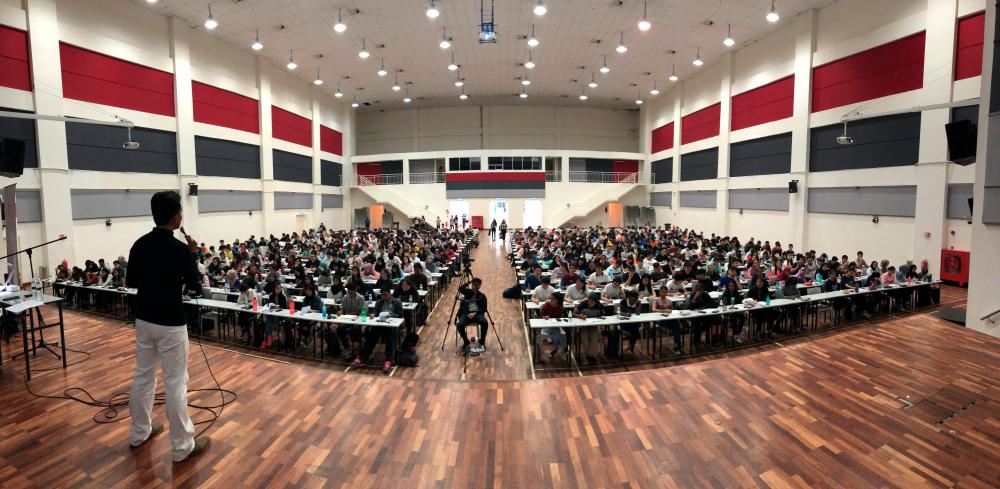
What do you think is currently lacking in the Malaysian education system?
“I believe the main reason for the lack of interest by students towards the formal education syllabus is because they see little relevance in what they are learning in relation to the real world. Students often question me if I have used the formulas taught in my Mathematics classes in real life settings before.
“I think there is a need to innovate the current syllabus to fit current times. We are in the age of digital transformation, and it will be crucial for the education system to place more importance towards subjects that reflect this revolution. The effects of an outdated syllabus will be reflected by the economy in years to come, when the current generation of students are absorbed into the workforce, only to realise that they are not globally competitive.”
Many students are finding it challenging to continue their studies from home and many teachers have lost income due to the closure of tuition classes due to the MCO. What can be done to fill this gap and provide support?
“The MCO has accelerated the need for a comprehensive online Learning Management System (LMS). Currently, many teachers and private tutors are resorting to various applications such as Zoom and Skype to conduct their classes online. While these tools are great for live streaming, they lack the functions required for proper teaching and learning to take place.
“We believe that our platform http://mytuition.live is able to fill this gap and [solve] to this problem. The aim of the platform is to transfer the entire classroom learning experience to the online space by integrating all the necessary functions for conducive teaching and learning to a single platform, including live streaming, management of courses, materials and quizzes, digital whiteboard, and gamification via leaderboards and e-awards to students. In other words, it will be able to serve as an online education hub.
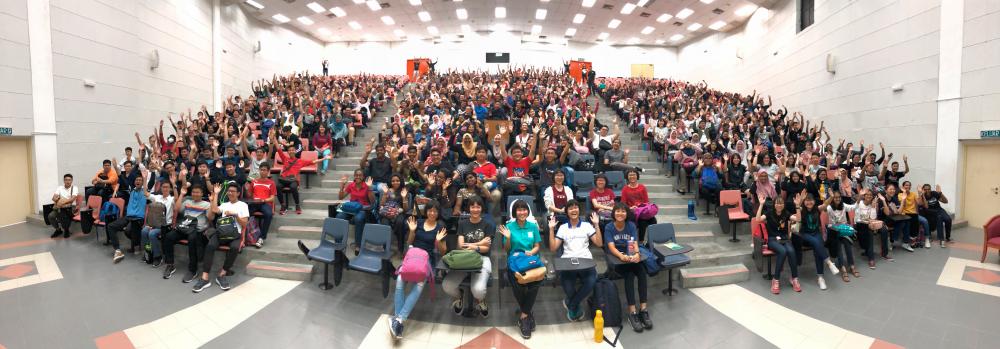
“Teachers and private tutors can continue to create quality content and be compensated via fees charged to students who use the platform. [However], for the first phase of launch, we assembled a team of expert teachers to teach for free for the duration of school closures during the Covid-19 pandemic.”
What is your advice to other retired athletes who are looking to become entrepreneurs?
“I believe there is no real answer or method behind a successful venture. Accepting the fact that the business environment is ever-changing allows us to be flexible and [ready] to face new challenges.
“Having the right mentor helps in the planning and execution processes of the business. More often than not, a good mentor helps by leading us away from pitfalls that they may have gone through [themselves].
“Being in the company of the right people also matters. There is a saying that goes: ‘You are the average of the five closest people that you spend the most time with’. It is a saying that I live by. I believe that every entrepreneur will face moments of stress and even depression at some point during their ventures. It is during moments like these that being in the right circle of friends helps to alleviate our frame of mind.
“We are, after all, just human.”



